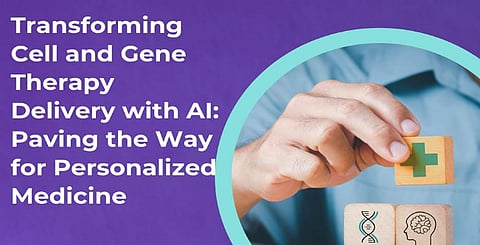

Cell and gene therapies (CGTs) are revolutionizing the landscape of personalized medicine, offering treatments that were once unimaginable for previously incurable diseases. Sri Santhosh Hari, a scholar from the University of San Francisco, explores the groundbreaking innovations that artificial intelligence (AI) is bringing to the supply chain of CGTs in his recent article. These advancements promise to address the critical challenges associated with CGT manufacturing, distribution, and patient outcomes, turning personalized treatments into a tangible reality for more people worldwide.
Cell and gene therapies represent the cutting edge of medical technology, offering solutions for genetic disorders and certain cancers. However, the manufacturing processes involved are incredibly complex. Unlike traditional pharmaceutical manufacturing, which uses standardized materials and processes, CGTs rely on biological materials like patient-derived cells, making their production highly variable and demanding.
The manufacturing process for CGTs requires extreme precision. Minor deviations in any step of the process, from cell harvesting to genetic modification, can result in failures. This is where artificial intelligence steps in as a game changer. AI technologies, such as machine learning algorithms and predictive analytics, allow for better control over the manufacturing process. By processing vast amounts of data, AI can detect subtle patterns that may affect the quality of the product, thereby improving consistency and minimizing errors. As AI continues to evolve, it holds the potential to automate quality control, optimize resource allocation, and significantly reduce waste, making CGTs more reliable and accessible.
For patients undergoing CGT, time is of the essence. The production and delivery process, from cell collection to therapy administration, can take weeks. During this time, patients, especially those with aggressive conditions, may experience disease progression, which can decrease the efficacy of the therapy. Delays in production not only affect the clinical outcomes but also increase the risk of complications like cytokine release syndrome.
Logistics is another area where artificial intelligence is making a significant impact. The transport of CGT products requires strict temperature controls and timely delivery to preserve the product's integrity. Unfortunately, any delay or mishandling during transportation can render the therapy ineffective, leading to significant costs and, more importantly, adverse outcomes for patients.
AI technologies, particularly those focused on predictive analytics and smart routing, are optimizing the logistics of CGT products. Advanced algorithms analyze data from weather patterns, traffic conditions, and even past delivery performance to determine the most efficient and reliable routes. These AI-powered systems reduce delivery delays and prevent temperature excursions, which are critical to maintaining the potency of CGT products. By optimizing the supply chain, AI helps ensure that therapies reach patients on time, with the required conditions for maximum effectiveness.
AI's role doesn't end with the production and transportation of CGTs. It extends to patient outcomes as well. With predictive analytics, AI can help optimize the entire delivery process, ensuring that the right treatment is administered at the right time. AI can even monitor patient-specific factors and adjust treatment schedules accordingly, improving the chances of a positive response.
Four notable limitations stand in the way of these therapies: CGTs are expensive. Complex manufacturing, rigorous quality controls, and specialized logistics make for an expensive proposition in terms of these therapies. AI could reduce the overall cost for CGT production by streamlining processes, improving efficiencies, and reducing waste. Using smart scheduling, better resource allocation, and efficient logistics, AI can cut down the manufacturing expenses of these therapies, thereby letting more people afford and access them.
To conclude, Sri Santhosh Hari reminisces on AI applications for CGT supply chains as a glimpse into personalized medicine's future. These AI technologies will help solve some of the major issues that have stood in the way of CGTs' popularization. In the process of coming of age, these technologies will also increase manufacturing efficiency and logistical coordination, along with improving patient outcomes. Soon, the introduction of AI into the search for solutions will change CGT from a very expensive and complex treatment option into something with a much more widely accepted and trusted therapeutic pathway. Along this timeline, it becomes very apparent that AI will manage to play a hugely important role in bringing personalized medicine to clinicians for patients worldwide.
